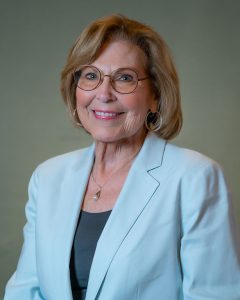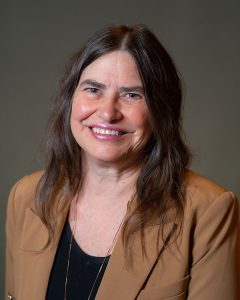When we age, our ability to metabolize substances such as alcohol decreases, and the risk of improperly mixing them with medications increases. At the same time, our relationship with healthcare providers who are best equipped to warn us of these issues is often less than ideal.
After seven years of working closely with a team from New York City’s Department for the Aging on a new educational intervention, Linda White-Ryan, Ph.D., and Janna Heyman, Ph.D., have developed an intervention that has proved successful on both fronts.

“As a person ages, there are many changes that take place in their life, such as the way we metabolize any substance, even if it’s aspirin in combination with alcohol, said White-Ryan, associate dean of academic affairs at the Graduate School of Social Service (GSS).
“We wanted to see if this educational intervention could really make a difference in the understanding of older adults about any of the possible risks, and how they communicate with their health care providers,” said Heyman, a professor and the Henry C. Ravazzin Chair at the GSS.
White-Ryan and Heyman began working on the intervention in 2016 with funding from the New York Public Trust.
Their research partners included Thomas Caprio, M.D., a professor at the University of Rochester Medical Center, Jacquline Berman, director of research at the New York Department for the Aging, and Manoj Pardasani, Ph.D., a former member of the GSS faculty who is now provost and vice president of academic affairs at Hunter College.

In 2018, after two years of design work, the team conducted a randomized control trial in older adult centers in Staten Island, Manhattan, and the Bronx. Participants were assigned to either the intervention group or a control group that received traditional services. The intervention group received educational material about health, physical and other aging changes, medication use, and possible adverse interactions between alcohol and medications, as well as strategies to initiate communication with physicians and other healthcare providers.
The authors of the study, which was published last fall in the journal Gerontology & Geriatrics Education, also made the information given to the intervention group available to the control group after the study was complete.
The intervention was titled Communicating with your Health Care Providers. It involved two meetings, held 10 days apart, with a total of 115 participants—55 in the intervention group and 60 in the control group. The median age of participants was 72, and 60% were women.
Role-Playing to Instill Confidence
The meetings were conducted in group settings, which was key to the intervention’s success, said Heyman.
“This intervention was so powerful because it allowed older adults to really be in a room with their friends and peers and say, ‘It’s OK, we need to ask important questions to our physicians and pharmacists,” she said.
The sessions also involved role-playing, with participants attempting to have conversations with actors portraying clearly distracted healthcare professionals. They were coached on how to be assertive and ask questions they might otherwise have shied away from.
A Growing Need for a Rapidly Population
The need to help older adults feel confident about asking their doctors for information is rapidly growing. By 2034, the U.S. Census Bureau has predicted there will be more people aged 65 and over than those under 18 in the United States. At the same time, the National Council on Aging has predicted that the number of older adults struggling with substance abuse, depression, and anxiety is expected to reach 15 million by 2030.
Results
Surveys administered to participants afterward found that those in the intervention group displayed a greater awareness of the implications of combining alcohol with prescription drugs and more confidence in their ability to communicate with their doctors and pharmacists.
Although the intervention took place pre-pandemic, White-Ryan said the reception that they received from participants was so positive, they’re hopeful that it can be replicated in the future.
“These are the physiological changes and emotional changes that happen as we age, but you can have good health, and communication with your health care providers is a big piece of that,” she said.
“So this intervention gave them important information and taught them about engaging with health care providers, advocating for themselves, and reaching out to get the information so that they age well or as well as possible.”

